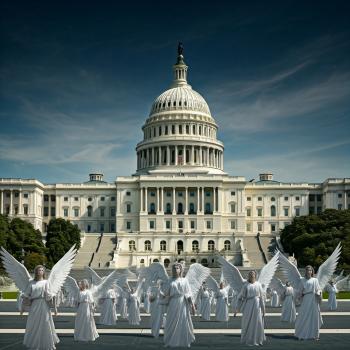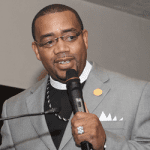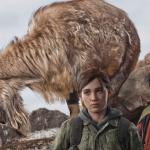Left Behind, pp. 242-247
Nicolae Carpathescu, er, sorry, Carpathia, the new president of Romania and Antichrist-in-waiting, is about to speak at the United Nations.
It's not clear why he's there, or why anyone should be particularly interested in what he might have to say. He isn't an expert in any particular field. He's had less than a week of experience as a national leader.
Carpathia has been described as the "consummate politician," but in his short career so far we've only seen him make one political decision and that was a disaster. Newly elected to lead his crisis-stricken nation, he decides — indefensibly — to leave, taking off to America. And once in America, he doesn't head to Washington, to the superpower's seat of power, but instead he goes to the UN. There he will meet with a room full of ambassadors — officials empowered to speak but not to decide or to act.
Strangely, the delegations from every nation seem to have remained there, in New York. Like Nicolae, they seem not to realize that their first responsibility, post-Event, should have been to return home. That's where they're needed. But instead they're here, on the East Side of Manhattan doing … well, it's not really clear what they're doing. Today, arbitrarily, they're gathering to hear a speech from some kid from Romania.
Carpathia … stood relaxed and smiling before speaking extemporaneously. Not only did he not use notes, but he also never hesitated, misspoke, or took his eyes off his audience.
He spoke earnestly, with passion, with a frequent smile, and with occasional, appropriate humor. He mentioned respectfully that he was aware that it had not been a full week yet since the disappearance of millions all over the world, including many who would have been "in this very room."
Our authors neglect to provide any examples of his occasional, appropriate humor, but it's good to know that in a world still traumatized by shock and grief, Nic is able to keep smiling and to give others something to chuckle over as well. The reference there to the "millions" of disappeared confirms that LaHaye and Jenkins do not count most of the world's 2.1 billion Christians as Real True believers. But they seem to be forgetting, yet again, that their rapture also included all of the world's children, which means that "millions" should be "billions" even before counting a single adult RTC. This seems like a particularly cruel fact to forget about at the site that also houses the headquarters of UNICEF.
Carpathia spoke primarily in perfect English with only a hint of a Romanian accent. He used no contractions and enunciated every syllable of every word. Once again he employed all nine languages with which he was fluent, each time translating himself into English.
Now I'm not so much picturing a young Robert Redford as I am a young Brent Spiner.
In one of the most touching scenes Buck had ever witnessed …
It needs to be said: Never, ever start a sentence that way.
In one of the most touching scenes Buck had ever witnessed, Carpathia began by announcing that he was humbled and moved to visit "for the first time this historic site, where nation after nation has set its sights. One by one they have come from all over the globe on pilgrimages as sacred as any to the Holy Lands, exposing their faces to the heat of the rising sun."
Geography, apparently, is not Carpathia's forte. New York City is, indeed, on the East Coast but it is not therefore a part of the East. I suppose, though, that if you flew into Newark, your face might be exposed "to the heat of the rising sun" as you traveled to the U.N. from New Jersey.
"Our forebears were thinking globally long before I was born," Carpathia said. "In 1944, the year the International Monetary Fund and the World Bank were established, this great host nation, the United States of America, along with the British Commonwealth and the Union of Soviet Socialist Republics, met at the famous Dumbarton Oaks Conference to propose the birth of this body."
His whole speech is like this — dull, stilted and full of the trivia of history while oblivious to its meaning. The U.S., Britain and the USSR were, indeed, "thinking globally" in 1944, but neither Little Nicky nor the authors seems to realize why. Carpathia's speech sounds a bit like a lazy schoolchild's book report — the kind where the kid avoids learning anything at all about the big picture, instead just listing a bunch of names and dates copied out of the World Book Encyclopedia and wrapped up with a ridiculously transparent bit of padding.
Displaying his grasp of history and his photographic memory of dates and places, Carpathia intoned, "From its official birth on October 24, 1945, and that first meeting of your General Assembly in London, January 10, 1946, to this day, tribes and nations have come together to pledge their wholehearted commitment to peace, brotherhood and the global community."
This, keep in mind, is being presented as stirring oratory. "Buck was tired and felt grimy wearing two-day-old clothes," L&J write. "But his worries were a distant memory as Carpathia moved along."
And what, exactly, does Carpathia say that causes Buck to forget his worries? He recites the names of the member states of the United Nations. Alphabetically.
No, really.
He began in almost a whisper, "From lands distant and near they have come: from Afghanistan, Albania, Algeria …" He continued, his voice rising and falling dramatically with the careful pronunciation of the name of each member country of the United Nations. Buck sensed a passion, a love for these countries and the ideals of the U.N. Carpathia was clearly moved as he plunged on, listing country after country, not droning but neither in any hurry.
It's like the opening ceremony of the Olympics, only without the music and the pageantry, and with a bunch of diplomatic funtionaries instead of the world's finest athletes. You can read a transcript of this part of Carpathia's speech in the CIA World Factbook — just click on the "Select a Country or Location" menu bar and scroll down. Carpathia's "speech," in other words, is simply the Table of Contents for a world atlas.
Great actors are sometimes said to be so captivating, so skilled at speaking, that "You could listen to them read the phone book." But that compliment isn't meant to be taken so literally. Think of any of the great voices about whom this has been said — Orson Welles, James Earl Jones, Judi Dench — and try to imagine them capturing and keeping your attention by reciting this list. It's inconceivable. No one could make such a recitation bearable, let alone enthralling. And attempting to recite this list "dramatically" could only result in giggle-inducing silliness. (Go ahead and try it — click over to the Factbook and read that list, out loud and dramatically. Emote. You'll be laughing before you even get to Djibouti.)
A charitable interpretation here would be to read the banality of Carpathia's "speech" as intentional. Perhaps L&J meant to demonstrate his awesome charisma by showing the effect he is able to have on his listeners even while mindlessly parroting a list of disconnected dates and facts laced together with vapid clichés. But the context of the rest of the chapter won't allow for such a subtle interpretation. The substance of his speech is clearly intended to be seen as inspiring, and L&J portray Carpathia's audience as being justifiably moved by what they have heard. His words are, in themselves, intended to be read as emotionally stirring, and it's not merely his supernatural, anticharismatic aura that prevents his listeners from walking out muttering that this Romanian idiot is wasting everyone's time thinking he's hot stuff because he has the building directory memorized.
A minute into his list, representatives noticed that with each name, someone from that country rose in dignity and stood erect, as if voting anew for peace among nations. Carpathia smiled and nodded at each as they rose, and nearly every country was represented. Because of the cosmic trauma the world had endured, they had come looking for answers, for help, for support. Now they had been given the opportunity to take their stand once again. …
By the time he got into the Ss in his alphabetical listing, those standing had begun to quietly applaud each new country mentioned. It was a dignified, powerful thing, this show of respect and admiration, this re-welcome into the global village. …
Buck found himself eager to stand as well, ruing the fact that his country was near the end of the alphabet, but feeling pride and anticipation welling up within him. As more and more countries were named and their people stood proudly, the applause grew louder, merely because of the increased numbers. Carpathia was up to the task, his voice growing more emotional and powerful with each new country name.
On and on he thundered as people stood and clapped. "Somalia! South Africa! Spain! Sri Lanka! Sudan! Suriname! Swaziland! Sweden! Syria!"
Members of the Afghan delegation, by this point, have to be kicking themselves for starting this whole stand-and-clap business. The Zimbabweans, meanwhile, are trying to figure out if they still have time to run to the bathroom and get back before their name is called since they've had to go since somewhere around Burundi.
More than five minutes into the recitation, Carpathia had not missed a beat. He had never once hesitated, stammered or mispronounced a syllable. …
This would actually be a good time for him to hesitate, stammer and miss a beat, because right after "Syria!" comes "Taiwan!" — and whether he says it or not, he's going to provoke some kind of international incident.
Buck was on the edge of his seat as the speaker swept through the Ts and reached "Uganda! Ukraine! The United Arab Emirates! The United Kingdom! The United States of America!" And Buck leaped to his feet, Steve right with him, along with dozens of other members of the press.
… With such electricity and power in the simple naming of all the countries who had longed to be united with each other, Carpathia had brought the entire crowd to its feet in full voice and applause, press and representative alike. …
And there was more …
Oh, good. There's more. What's next, a list of state birds? No, something even worse:
Over the next half hour he … casually worked in the name of every secretary-general from Trygve Lie of Norway to Ngumo and mentioned their terms of office not just by year but also by specific day and date of their installation and conclusion. … Then he swept through the 18 U.N. agencies, mentioning every one, its current director, and its headquarters city.
One of those agencies, again, is UNICEF. I'm not sure which is more cruelly callous — to discuss that agency in the current context without any reference to the world's missing children, or to subject an audience to a speech in which he says things like "Boutros Boutros-Ghali served as secretary-general from January of 1992 until December of 1996" in nine languages.
The sentence above is astounding on its own, but even more terrifyingly awful in the context of the complete paragraph:
Then he swept through the 18 U.N. agencies, mentioning every one, its current director, and its headquarters city. This was an amazing display, and suddenly it was no wonder this man had risen so quickly in his own nation, no wonder the previous leader had stepped aside. No wonder New York had already embraced him.
How could New York not embrace him?
"Honey, thanks to the disappearances, I was finally able to get tickets to Wicked!"
"Never mind that now — I'd rather go see this Romanian fellow who can recite trivia about all 18 U.N. agencies!"
After this, Buck knew, Nicolae Carpathia would be embraced by all of America. And then the world.
The connotations of that "And then the world" only underscores how wretchedly inept this whole chapter has been. Carpathia's rise should be far more ominous and creepy, more unsettling.
Bob Fosse knew how to do this scene.
A fresh-faced lad stands in the sunshine and begins to sing in an angelic voice. The words of his song, at first, seem innocent, but there's a sense of foreboding as the camera pans slowly down to reveal his smartly pressed uniform. Slowly, inexorably, the bucolic scene grows darker and uglier, building to a fierce and horrifying crescendo.
















